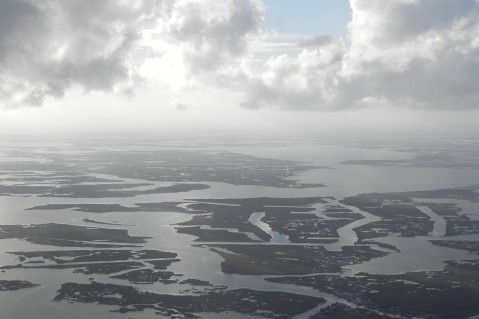A new article by Clive Hamilton argues that climate change reveals the long Western notion of the separation of humans from nature (nature/culture dualism) to be a sham. Climate change, he argues, lays bare that humans are and always have been embedded within natural systems, which at this point in time, we are so entangled we cannot epistemologically and ontologically separate the two. Hamilton writes,
Climate science is now telling us that such a separation can no longer be sustained, that the natural and the human are mixed up, and their influences cannot be neatly distinguished.
This is an idea that has been circulating in environmental history (William Cronon) and political and urban political ecology (e.g. Nik Heynen, Maria Kaika, and Erik Swengedouw, among many others). Recently, the hybrid thesis is moving into mainstream writing with the help from writers like Emma Marris.
Hamilton declares the social sciences to be on the way out. Why? He argues that since nature and society are not separate categories there is no longer a need for a dedicated social science. He writes,
So the advent of the Anthropocene shatters the self-contained world of social analysis that is the terrain of modern social science, and explains why those intellectuals who remain within it find it impossible to “analyze” the politics, sociology or philosophy of climate change in a way that is true to the science. They end up floundering in the old categories, unable to see that something epochal has occurred, a rupture on the scale of the Industrial Revolution or the emergence of civilization itself.
It's a bold argument. But I think he's wrong.
Environmental sociologists and other environmental studies folks, far from fading into oblivion, have an unique position in these matters because of their understanding of cultural, political, and economic systems, which analyzed properly are not siloed away from nature, but rather the society-nature hybrid is integrated into an overall analysis. Multi-disiplinary and trans-disciplinary collaboration, such as the Sustainable Engineering and Ecological Design institute at my alma matter.
Furthermore, Hamilton oddly enough makes an environmental determinist claim, which goes against his overall argument:
From hereon our history will increasingly be dominated by “natural processes”, influenced by us but largely beyond our control. Our future has become entangled with that of the Earth’s geological evolution...it can no longer be maintained that humans make their own history, for the stage on which we make it has now entered into the play as a dynamic and capricious force.
He wants to argue that social science is going away, that the Modernist human-nature duality is crumbling, but then makes a statement that subsumes society into the totality of nature and puts us at the complete whim of nature. This is not hybrid socio-nature thinking that I and others, and Hamilton, up until that point, make.
Environmental studies requires systems thinking rather than category thinking. We may be embedded within natural systems, but it is incorrect to argue that we are now at the whim of nature. It is not enough to just turn Modernity on its head, as Marx once turned Hegel on his head, replacing base with superstructure. We need to continue to push the boundaries and dissolve the categories towards new socio-ecological studies. Down with dualisms, old and new.




